Boy do we love senior cats! In order to give our feline friends the proper care they need and deserve, we need to understand the ways that cat bodies change as they age, what to expect, and what behavioral changes could signal an underlying health problem.
Make an appointment with your veterinarian if you notice your senior cat exhibiting any of these behaviors, since problems can escalate faster in senior cats.
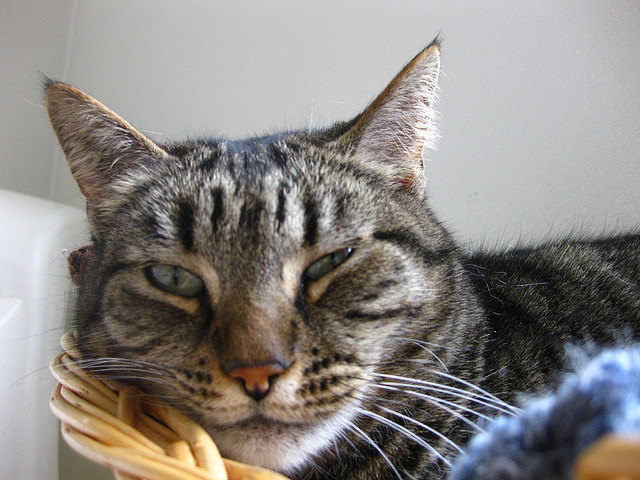
Image Source: Hotash via Flickr.com
#1 – Change in Activity Level
Your cat may have arthritis or otherwise stiff and achey joints if you’ve noticed a new hesitance to jump, run, or climb. Arthritic cats may also begin having litter box problems if they can’t find a painless way to get in and out of the box. Though arthritis can be a result of an injury or infection, in senior cats it’s often just a matter of the natural process of aging. As your cat gets older, her cartilage (which acts as a cushion between bones at her joints) will deteriorate, leading to pain, inflammation, and decreased flexibility.
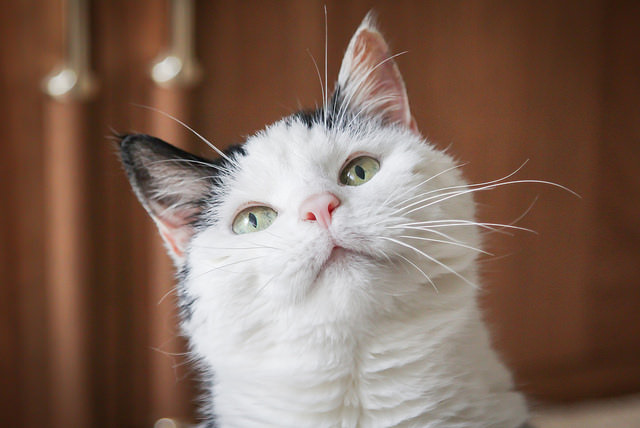
Image Source: Maja Dumat via Flickr.com
#2 – Change in Litter Box Habits
Senior cats can start avoiding the litter box for a variety of reasons.
- A cat with achey joints may avoid the litter box if she’s having a hard time getting in and out of it without pain. If the box is far away from where she normally naps, her aches and pains may make a trip to the other side of your home seem too daunting. If you suspect this is the case, move the litter box closer to where she’s most likely to hang out.
- Cats with certain medical conditions (like diabetes or renal failure) will be inclined to drink excessive amounts of water, which can result in unpredictable bladder control.
- Constipated cats may avoid the litter box if they associate the pain and discomfort with the litter box.
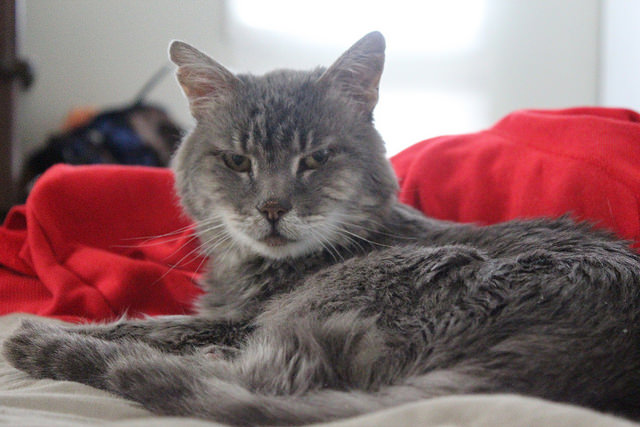
Image Source: Julie Duffy via Flickr.com
#3 – Easily Startled
An aging cat who is easily startled may be experiencing a loss (completely or partially) of hearing or sight. Cats heavily depend on their abilities to hear and see to hunt prey and avoid becoming prey themselves. Any dimming of these senses can make them feel vulnerable and jumpy.
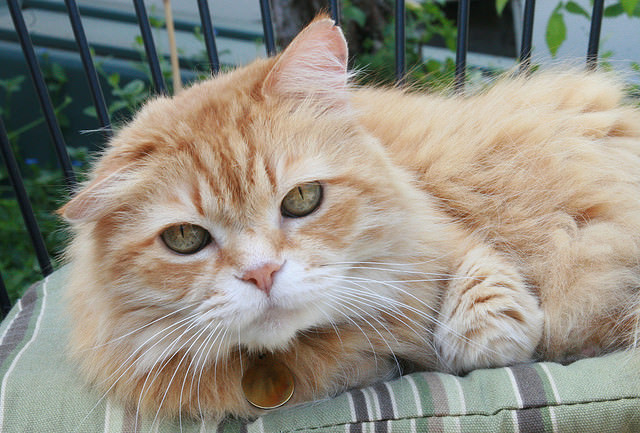
Image Source: Living in Monrovia via Flickr.com
#4 – Change in Grooming Habits
A change in grooming habits can signal an underlying illness (kidney failure, thyroid problems, etc.). Achy and arthritic cats will often avoid grooming too, since it can be so painful to flex and reach.
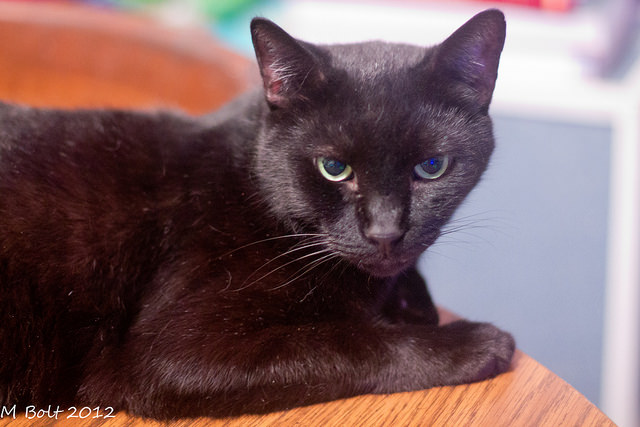
Image Source: M B via Flickr.com
#5 – Change in Food or Water Consumption
Any change in eating or drinking behaviors can be seen as a red flag.
- If your cat is suddenly drinking excessive amounts of water it could signal a condition like diabetes, hyperthyroidism, or kidney disease.
- Cats who aren’t drinking enough water can quickly become dehydrated.
- Diabetes can make a well-fed cat feel as if she is starving, causing her to eat even more.
- A decreased appetite could signal lethargy, cancer, or dental pain.
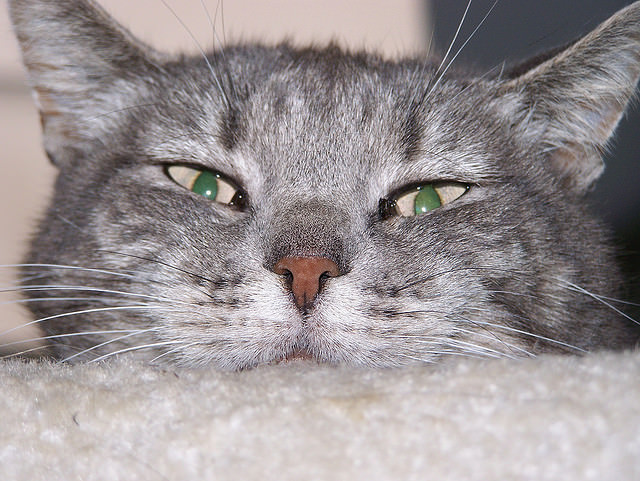
Image Source: Rocky Mountain Feline Rescue via Flickr.com
#6 – Change in Vocalization
You know your cat best and will be able to detect small changes in her behavior better than anyone else. Trust your intuition if your cat has been excessively chatty or the pitch of her voice has changed.
